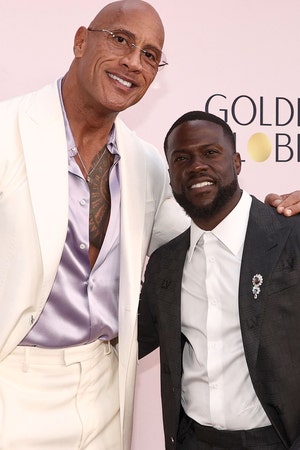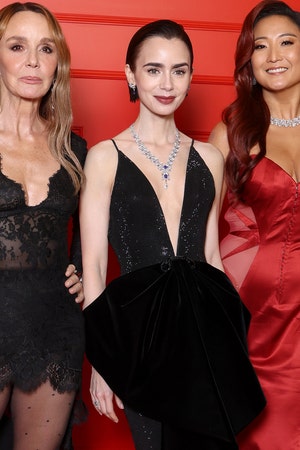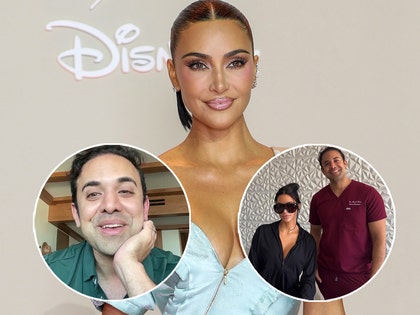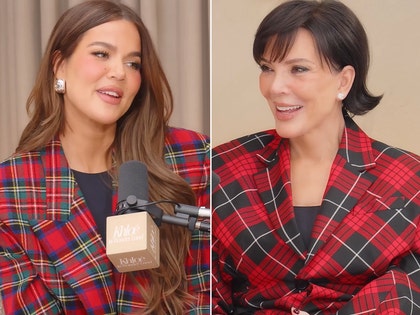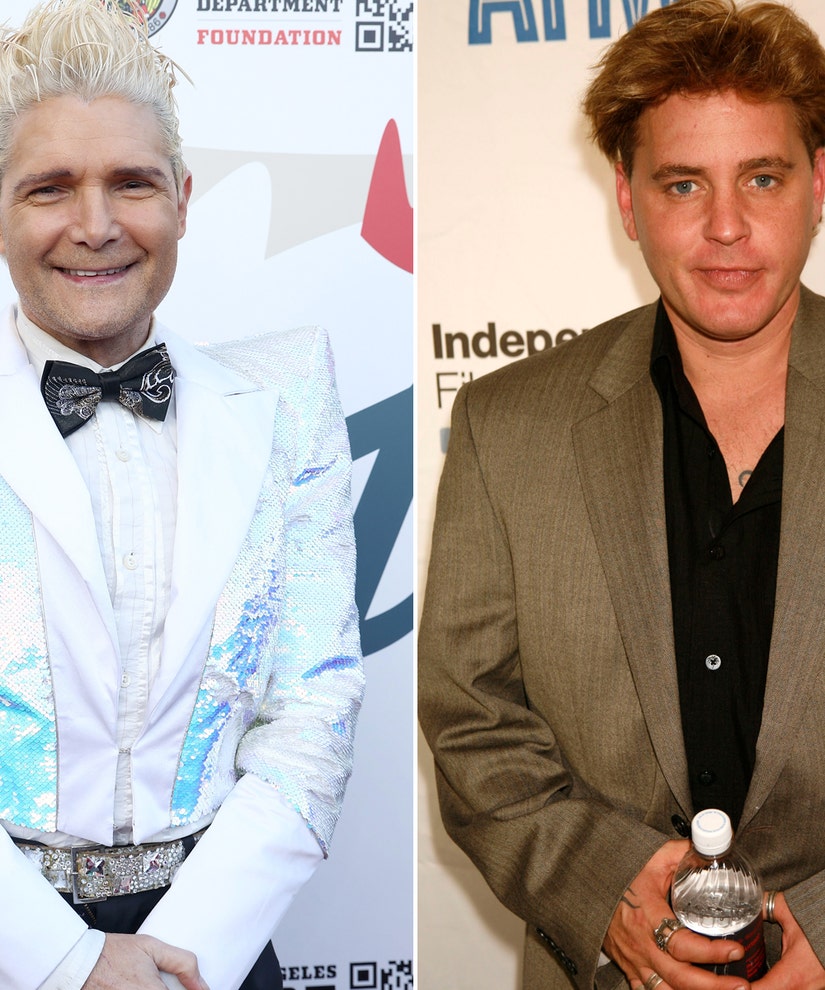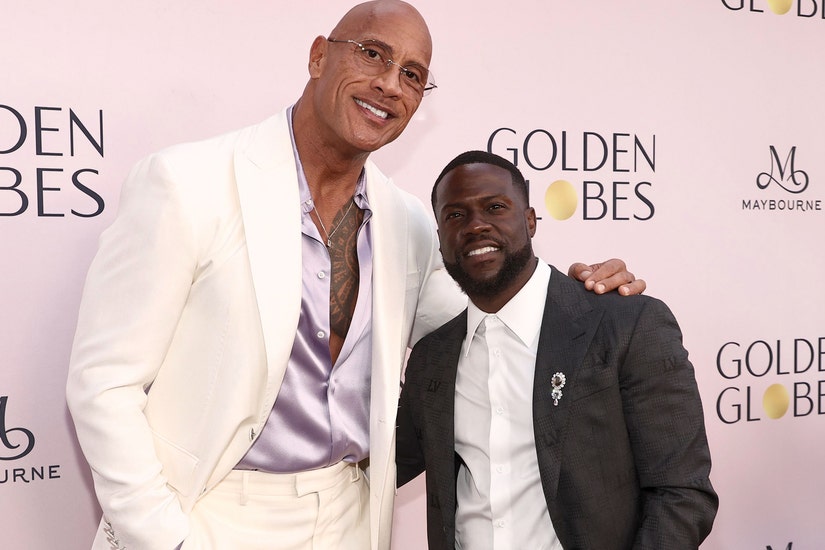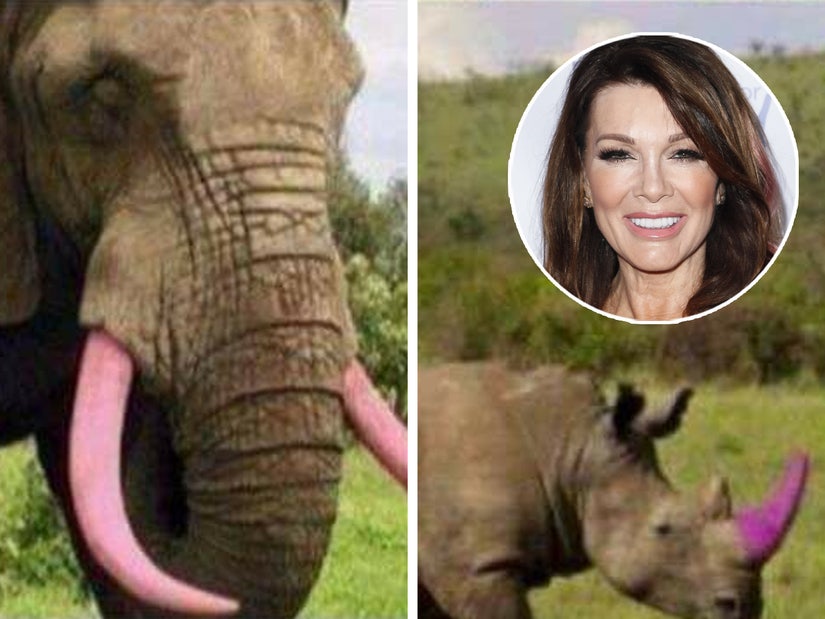 Twitter/Getty
Twitter/Getty
She retweeted the impressive (albeit Photoshopped) proposal.
Lisa Vanderpump wants to dye rhino horns and elephant tusks pink — and not just because it looks fabulous.
The RHOBH alum retweeted images of big game animals who had supposedly avoided becoming big game thanks to an anti-poaching initiative that renders their "trophies" bright pink, and therefore useless.
"One of the best things I've seen in awhile," the original tweet from Nature Lovers read. "They use the same pink dye that is attached to stolen bank notes."
 Facebook
Facebook
American Man Almost Lynched By Frenzied Mob in Israel After YouTuber Posts Videos of Him Allegedly Abusing Dog
View Story"This makes the ivory unsellable, and it cannot be consumed. The animals are not harmed and it is saving their lives. Please share, thanks."
Unfortunately the image is completely false — as is a lot of the social media information surrounding the initiative when it first started doing the rounds in 2015, per Snopes.
One of the best things I’ve seen in awhile. They use the same pink dye that is attached to stolen bank notes. This makes the ivory unsellable, and it cannot be consumed. The animals are not harmed and it is saving their lives. Please share, thanks. pic.twitter.com/XcnRN6QEy2
— Nature Lovers (@natureslover_s) October 7, 2020 @natureslover_s
According to the site, there is some truth to the plan, even if the visual results are not quite as vibrant as the faked images purport it to be.
One organization, the Rhino Rescue Project, infuses rhino horns with a compound that actually discolors them from the inside, which is what prevents them from being used ornamentally; the die only discolors the horn marginally on the outside, if at all.
 Getty
Getty
Lala Kent Responds After Scheana Shay Says She 'Wasn't There' For Her After Miscarriage
View StoryThe compound, however, has a much more pronounced effect on anyone trying to use the horn for medicinal purposes, which is the other primary reason the endangered animals are hunted: it poisons the horn — without harming the rhino of course — rendering the horn not only completely useless for medical use, but dangerous.
It also has the added two-fold bonus of making it potentially toxic for a poacher to handle.
"At a minimum it would start with diarrhea, nausea, vomiting, severe headaches, all the way up to nervous symptoms, which could be permanent," the almost-aptly named Lorina Hern told Public Radio International in 2015. "Some ectoparasiticides also precipitate the development of cancers later on in life."
The process is tricky and expensive, but also necessary if you want to insure individual rhinos against poachers with one of the few African insurance companies that even bother offering insurance on such at-risk animals.
The idea, Hern said, is not to poison every rhino horn, but to make poachers — and people who consume rhino horn medicine — think twice.
Bright pink or not — anything that stops poachers is definitely something fierce animal protector Lisa Vanderpump is completely on board with.
 Getty
Getty





